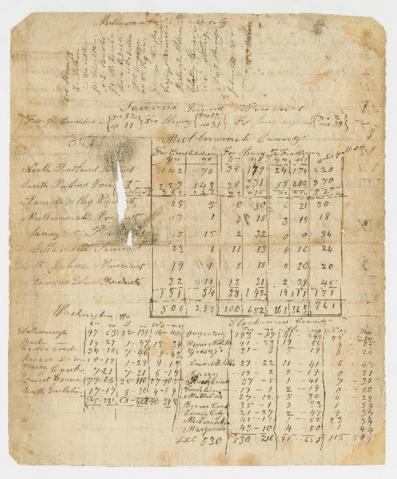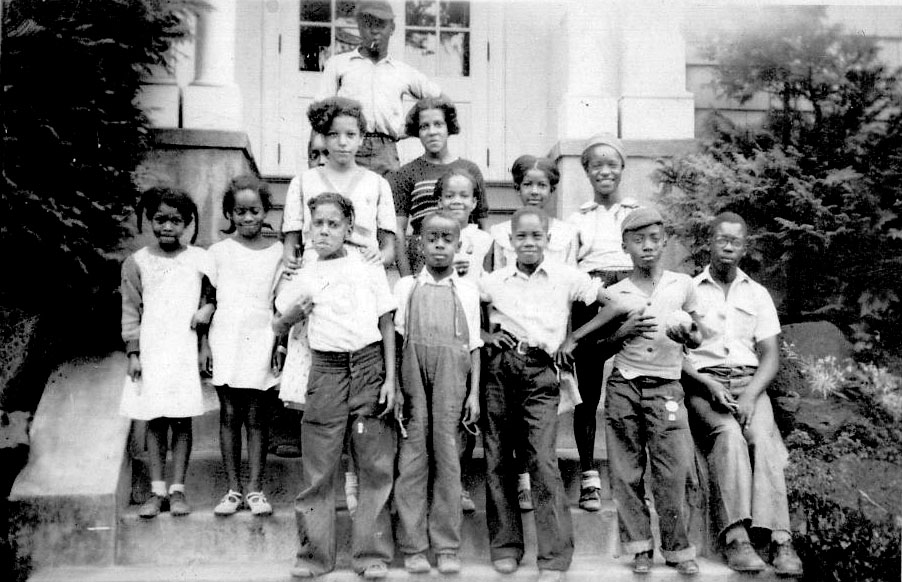George Bush, sometimes named as George Washington Bush in the historical record, was born c. 1790 in Pennsylvania. His father was Black, likely a sailor from the British West Indies, and his mother was Irish. While many pioneers earned reputations as rugged individualists, Bush epitomized compassion and selflessness, traits that helped him become one of the most important leaders of the first group of American citizens to settle on the north bank of the Columbia River, in what is now Washington State. A veteran of the War of 1812, Bush traveled to the Pacific Coast in 1820, found work as a freelance trapper, and eventually became employed with the Hudson's Bay Company. In 1830, he returned to Missouri, married Isabella James, a German-American and minister’s daughter, raised five sons (their sixth was born in Washington Territory), and worked the family farm. Although quite successful as a farmer in Missouri, Bush's family was still the target of racial prejudice, a reality that inspired him to return to the West and start a new life in Oregon Territory.
In May 1844, Bush partnered with Michael Troutman Simmons, a man from the same hometown as Isabella James, and they led a thirty-two-person party over the perilous Oregon Trail. Although Bush and Simmons had the means to finance their journey, many of their fellow travelers did not. Demonstrating the compassion and charitable nature for which he would become known, Bush personally funded those of his party who could not afford to make it on their own. After four months, the wagon train arrived in Oregon. Unfortunately, the policies of racism had beat him to the West. In June 1844, Oregon's Provisional Government enacted the first of a series of exclusion laws, commonly known as the "Lash Law." Through such legislation, citizens of Oregon Territory used community-sanctioned violence and intimidation to prohibit African Americans from owning land in the region.
Refusing to be separated by racist politics, Bush and Simmons temporarily settled on the north bank of the Columbia River, a region under the direction of the British-owned Hudson’s Bay Company and so less subject to the Provisional Government’s laws. During the summer of 1845, Bush moved his family to present-day Tumwater (the first permanent American settlement in what would become Washington State), staked out a 640-acre claim, and (with Simmons) opened the region's first gristmill and sawmill. On his farm, Bush grew vegetable crops, fruit trees, and grain, all of which he willingly shared with those in need. He is credited with saving his neighbors from a famine during the winter of 1852.
In 1846, with the extension of Oregon Territory to the 49th parallel and the formation of a formal territorial government with jurisdiction north of the Columbia River, Bush was once again confronted with the law that prevented him from owning land, and he faced losing everything he had worked for. However, Bush's friends and neighbors rallied to his aid and petitioned the United States Congress. It took years of effort, but on January 30, 1855, Congress passed a special act that allowed the Bush family to retain their property holdings.
George Washington Bush died on April 5, 1863, of a cerebral hemorrhage, but not before he left behind a legacy of decency and compassion that reverberated through his community for decades to come.
Related Entries
-
![Black Exclusion Laws in Oregon]()
Black Exclusion Laws in Oregon
Oregon's racial makeup has been shaped by three Black exclusion laws th…
-
![Black People in Oregon]()
Black People in Oregon
Periodically, newspaper or magazine articles appear proclaiming amazeme…
Related Historical Records
Further Reading
City of Tumwater. "Research Center--Articles on George Washington Bush." http://www.ci.tumwater.wa.us/research%20bushTOC.htm
Heikell, Iris White. The Wind-Breaker - George Washington Bush: Black Pioneer of the Northwest. New York: Vantage Press, 1980.
Hult, Ruby El. The Saga of George W. Bush. Seattle: University of Washington Press, 1962.


